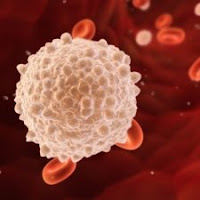 Counterintuitive Cure: A Nanovaccine That Stops Autoimmune Disease by Boosting the Immune System
Counterintuitive Cure: A Nanovaccine That Stops Autoimmune Disease by Boosting the Immune SystemA new treatment prevents type 1 diabetes in mice by turning the immune system on itself
The human body's immune system can quickly track down and kill cells that don't belong. Take certain kinds of bacteria: molecules on their surfaces flag them as foreign invaders, alerting the body's defenders to the breach and drawing a full-fledged attack on anything waving that molecular flag. But sometimes the system mistakenly attacks the body's own cells. The result is autoimmune disease, such as type 1 diabetes, in which the insulin-producing beta cells of the pancreas are attacked and destroyed by T cells.
Scientists have struggled to find ways to treat autoimmune disease without compromising overall immunity. Therapies that suppress the immune system carry the risk of letting infections and even tumors go unchecked. But researchers in Canada have found a way to prevent type 1 diabetes in mice by doing just the opposite—vaccinating to boost the immune system.
The approach, published April 8 in Immunity, exploits the immune system's built-in safety mechanism—a group of regulatory T cells whose job is to squelch overactive immune responses.
"Essentially, there is an internal tug-of-war between aggressive T cells that want to cause [an autoimmune response] and weaker T cells that want to stop it from occurring," says study senior author Pere Santamaria from the Julia McFarlane Diabetes Research Center at the University of Calgary in Alberta. Although they have seemingly opposite effects, these different classes of T cells are "musicians in the same orchestra," Santamaria explains. And they take directions from the same conductor—the antigen-presenting cell (APC).
APCs are specialized white blood cells that grab tiny bits of protein off the surfaces of other cells (like invaders or, in the case of diabetes, beta cells), chop them into pieces (antigens) and present them to T cells to instigate the immune response. "T cells have to be fed," Santamaria says. "If there is no antigen-presenting cell, there is no immune response."
When the aggressive, autoimmune disease-causing T cells are presented with antigens from dying beta cells, they keep attacking and killing the beta cells. But when the weak T cells that want to stop the disease are presented with those same antigens, they kill the APC. "A single weak T cell can blunt the problem by killing the orchestra leader," Santamaria says. And unlike aggressive T cells that die shortly after killing their targets, weak T cells proliferate. "They become long-living cells that attempt to regulate the disease," Santamaria says.
Santamaria designed a "vaccine" to boost the activity of the weak T cells. He used nanoparticles—spheres thousands of times smaller than a single cell—that were coated with beta cell antigens. In doing so, he created an APC doppelganger that could repeatedly activate the weak T cells, causing them to proliferate and kill the real APCs. The nanoparticles shield the antigens from degradation, meaning they stay in the system much longer, so they can be delivered at fewer intervals and at lower doses.
The nanovaccine prevented diabetes in a prediabetic mouse model and restored normal blood sugar levels in diabetic mice. Santamaria hopes to translate his exciting finding into human clinical trials. "We know what we want the compound to look like for use in humans—it's not a pie in the sky," he says. "But launching a clinical trial is not a trivial task. It requires that we do our homework properly."
Over 23 million people in the U.S. have diabetes, according to the most recent report jointly produced by the U.S. Centers for Disease Control, the National Institutes of Health (NIH) and the American Diabetes Association, although only 5 to 10 percent of those cases are thought to be autoimmune (type 1 diabetes). Type 1 diabetics have to carefully monitor their blood glucose levels and routinely administer insulin to keep them down. They have a heightened risk for kidney failure, heart and eye problems, and nerve disease.
Autoimmune disease affects up to 23.5 million Americans, according to the NIH, and it is one of the top 10 leading causes of death in female children and women in all age groups up to 64 years. Santamaria plans to test his approach in models of other autoimmune diseases, such as multiple sclerosis and rheumatoid arthritis. "We're trying to extend this paradigm to see if it applies to other autoimmune disorders, as well. We think it will but that remains to be seen. That’s our hope and dream."
to find someone or something after searching for them in many different places
I'm trying to track down one of my old school friends.
They've finally managed to track down that book I wanted.
